|
By E.M. Fredric Holly Knight is one of the pure songwriters of our time who transcends trends and fads. Her craft is real and timeless, and her songs will remain in the public’s mind long after most of the songs of today’s producers and beatmasters fade out into the sunset… Randall Wixen/ Wixen Music Publishing HOLLYWOOD, CA – 09/10/2019 - Holly Knight – singer/songwriter, musician, producer – owns three Grammy Awards (in the rock vocalist category), thirteen Songwriter ASCAP Awards and in 2013 the gifted beauty was inducted into the Songwriters Hall of Fame. A powerhouse and revered artist – with a meteoric rise to fame in the 1980’s rock scene – she helped define a generation of music when MTV was in its infancy. Knight is considered by many of her peers to be the personification of a world class songwriter – whose hit songs have sold around a half billion records for some of the most successful singers in the business. I first saw Holly perform some of her immortal tunes at The Geffen Playhouse in Westwood during Rita Wilson’s returning Liner Notes show. Knight was billed as (Tina Turner’s The Best, Better Be Good to Me, Pat Benatar’s Love is a Battlefield) along with other special guests Billy Steinberg (Madonna’s Like A Virgin, Cindy Lauper’s True Colors)and the Warren Brothers (Tim McGraw’s Felt Good On My Lips, Dierk Bentley’s Feel That Fire). When she performed her Pat Benatar hit and jokingly said, “I’d like to dedicate this song to my three ex-husbands.” Holly’s wit, vivacity and wisdom were on full display. Tina Turner has said she would like The Best to be remembered as her signature song. A wonderful homage for the beautiful woman who left home as a teen to follow her dreams. This is Holly Knight, an irrepressible talent on her music, her life and the times: Les Paul once told me that “the girls have it hard in the music business.” What has been your experience? Holly Knight (HK): When I walked into the man cave of the music business, I was an anomaly. Not only was I an outsider, but I was a woman… and I was young too! (I left home when I was 15 years old). The times I wrote with the artist or band, I was so confident in my abilities, that it kind of turned men (and women) on and for some reason they never tried to fuck with me (or fuck me)… unless it was mutual. Sure, the occasional asshole would make some lewd sexist remark, but I’d just ignore it or put them in their place. I had many insecurities in other areas – but music was never one of them. What kind of home life did you come from and do you think in the long run it’s what drove you? HK: My parents divorced when I was eleven. My mom was married four times, my grandfather was married four times, one of my grandmothers, three times, my brother, three times. You can see a pattern there… for whatever reasons, and they were all… intellectual. My father was a doctor, my grandmother and grandfather were eye surgeons. There was a lot of drama and anger in my home and my reaction was to leave at a young age and carve out my own destiny. So STRENGTH was the one attribute that became of utmost importance to me. I guess that’s why I’ve written those titles like Invincible, The Warrior, Better Be Good To Me. It’s not a theme I deliberately set out to do, it just came out that way. Plus, as a teenager, I developed a big chip on my shoulder. I hated (and still do) being told what to do and have always had a problem with authority, so that comes out in the music. It’s why I appreciated strong female vocalists like Benatar, Ann Wilson, Chrissy Hinde, and Chrissy Amphlett (from Divinyls). Where’d you live when you first came to Los Angeles? HK: Marina Del Rey. I liked the fact that it was so different from anything in New York City, where I’m from. I liked all the boats and piers, the fresh air and sunshine. Imagine going from film Noir to Fuji Color. You were classically trained, what composers were your favorites and why the switch to rock ‘n roll? HK: My favorite classical composers were (and still are) Beethoven and Chopin. I still play them all the time on my Steinway, which I’ve had since I was eleven. The reason I instantly fell in love with Queen was because they had that perfect blend of classical and rock. I think my music contains both as well, although maybe that’s just something I hear. I also loved the power and savagery of rock music. There’s nothing like walking into an arena and feeling the force of a kick drum and loud guitars echoing through the hall. It’s adrenalin inducing. 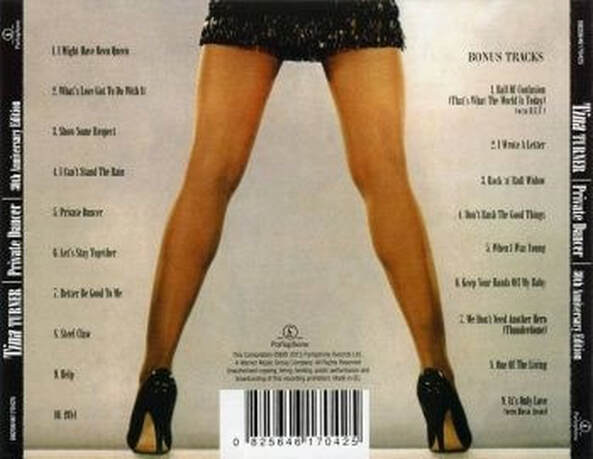 TINA TURNER'S "PRIVATE DANCER" HAD TWO HOLLY KNIGHT SONGS TINA TURNER'S "PRIVATE DANCER" HAD TWO HOLLY KNIGHT SONGS What does that mean to you, free? Wild, not contained? HK: Coloring outside the lines: To me, it means doing what you want to do, being who YOU want to be and not giving a fuck what other people think. But let’s face it, freedom is never for free and comes with a price… dedication, relentlessness, not worrying all the time if people think you’re cool or not. Who inspired you as a musician? HK: Jim Morrison, Queen, Zeppelin, The Stones, The Beatles, Todd Rundgren, Iggy, Burt Bacharach, David Bowie, Joni Mitchell, Prince, The Pretenders and John Barry (who wrote all the James Bond themes). I liked the heady bands too like King Crimson, Yes – (even though I never knew what the hell they were singing about) – ELP, Genesis, Pink Floyd and Frank Zappa. Do you see a theme you tend to write about? [HK: I’ve been told over and over that I write “iconic, empowering anthems that often tend to have themes about “fighting.” If that’s true, I’d say they’re not about fighting with someone, as much as fighting “for something.” Who inspired you most while growing up and as you went on your own? HK: In my early years, a lot of fictional characters inspired me and help shaped my persona. Morticia Addams, Mary Poppins and James Bond. In the real world it was my first piano teacher who was a concert pianist from Yugoslavia, Gordana Lozarovich. I started with her when I was four and I wished she was my real mother. She looked like Julie Andrews, so I thought she was Mary Poppins, making it all the more intriguing. As I got older it was Gloria Steinem, Salvador Dali, Arthur C. Clarke, and Steven Spielberg. Lately, it’s Michelle Obama, Deepak Chopra and Elon Musk. You were in two bands, Spider and Device – how’d you like being on the road? Why did you leave your bands and which did you learn and love the most if at all? HK: I LOVED being on stage and playing live, I just couldn’t stand the other stuff. The traveling in a crowded tour bus, the phoners to the radio stations, the photography sessions and always having to worry about looking good when you went out. I’m really a homebody at heart. I left Spider because there was too much jealousy and competition in the band, and they weren’t happy about the fact that my songs always ended up being the singles. One day, on the road, Amanda (the lead singer) and I got into a fist fight and that was it for me. I gave them notice that I was leaving. I’m still good friends with Anton and Keith though. I’m really proud that Anton had done so well over the years. HOLLY AND DEVICE HOLLY AND SPIDER Device was more my baby, so musically I was allowed to flex my muscles and record what I wanted. We should’ve stayed together, but I fired the singer and didn’t have the energy to find another one. I had spent years traveling around the U.S. and Europe trying to find a real star the first time, when we heard Paul, I think our attitude was, “He’ll do, he’s malleable”… but that’s not what I really wanted (someone that was malleable). I wanted the real thing, a star with ideas of his own and a style and image of his own that would work with ours. Paul was a good singer, but we weren’t from the same solar system, he needed to be spoon fed everything. Ironically, we now have over half a million hits on YouTube and so many fans. So, I regret ending that. I should’ve let him go and started looking for a new singer. If Luke Spiller (The Struts) had existed back then, he would’ve been the perfect singer for Device. That’s the caliber of rock star I was hoping for. Ha ha What do you consider yourself first? A singer or songwriter? How did the opportunity to co-write with and be mentored by Mike Chapman come about? HK: I was dating a guy who had worked on all the Blondie records with Mike and he told me that this was the guy we should be working with. My band (Spider) was keen on working with Eddie Kramer (known for producing Hendrix)… he was South African like three of the members in Spider… but I felt that Chapman had mad skills, not only as a producer, (he also did The Knack/My Sharona, The Sweet, Nick Gilder) but he was also an amazing songwriter himself. So I sought him out – which wasn’t as easy as it would be these days – remember we didn’t have the internet. I met him one day at a party and gave him a tape. Weeks later he called and said he had a new record label, Dreamland Records and wanted to sign us. I went to Mike for our second record and asked him if he would write a song with me for the record… which ended up being, Better Be Good To Me. Tina Turner cut it the following year on her Private Dancer record and it became her second single. When I was ready to leave the band, Mike suggested I move out to LA where he was based, so we could write together and he would sign me to a new publishing deal. He also said that whatever records he produced, if he was looking for songs, that it could be a good pipeline for me. Helped or hindered or both? Did you find women were harder to deal with because you’re beautiful and talented? HK: For the most part, I loved the friendships I developed with other women. We were a small club of our own, out there with all the men. Especially the girls in Heart. In or out of business on being taken seriously – do you find in life you’re as much a fighter for the underdog or empowering others as your have been in your songs? HK: Absolutely. People need champions and warriors to help them fight the good fight. And lately I’ve felt an even stronger connection to women, with the #metoo movement and women starting to take on bigger roles. My friend, whom I met when I was signed to EMI Publishing, Jody Gerson is now CEO of Universal Publishing. We both had to tell Marty Bandier to go suck an egg at different times. How’d you feel being inducted into The Songwriters Hall of Fame? HK: For a day I felt like a rock ‘n roll queen. I performed, Love Is A Battlefield and Patty Smyth came and sung, The Warrior. Making my acceptance speech was a little nerve-wracking and I stupidly wore these five inch heels, so I kept praying I wasn’t going to slip and fall in front of everyone. After the awards? HK: After I was inducted into The Songwriters Hall Of Fame (in 2013) I think I relaxed a bit. I’d finally gotten validation and recognition for my body of work from my peers. To be inducted next to Steven Tyler and Joe Perry; Lou Gramm and Mick Jones, and J.D. Souther was quite an honor, and it was such a fun night! I’ve pretty much worked with them all so as an added bonus, it was like a reunion of sorts. I’ve yet to go downtown (L.A.) to see the Grammy Museum exhibit for the Songwriters Hall Of Fame, but I’ve heard I’m in there. Where are your Grammys? HK: They’re in my studio. I was given plaques back then because I was “only” the songwriter. What in relationships suffered by your work if at all? HK: The ONLY thing that caused my marriages to end was because I ended them. My strength and success always brought out their weakness. I’ve never really found my knight, my counterpart, but there are nice things about being on your own too. I have two sons, both now grown in their 20’s and they’re both awesome and amazing. I raised them completely on my own and I’m proud of that because I’ve always been a “hands on” mother. I’m more proud of that than all the other stuff to be honest. Both my parents were only children, so I have no aunts, uncles or cousins. So I come from a very small family. I envy people who come from large families. I LOVE My Big Fat Greek Wedding and that’s probably why. If you could change your path to where it has lead you – what would you do differently? HK: Well they say youth is wasted on the young. Ha ha. Let’s leave it at that. Holly Knight – Love Is A Battlefield – YouTube What has it allowed you to do that you cherish more than anything? HK: I’m one of the lucky ones and I have the best job in the world. Any time you can find something to do as a career that you love and be successful at it… well that’s living the dream, isn’t it? That freedom is what I cherish. What do you do to give back to aspiring musicians today regardless of age or gender? HK: I do motivational talks and master classes. I’ve participated in a lot of the ASCAP EXPOS where I’m on a panel, or they’ve asked me to critique a writer’s work that they’ve submitted. What moves you in giving back? HK: I think this is a tough time for songwriters. There are more writers now then there have ever been, which makes it exponentially more competitive. The money is less because of Spotify, Pandora, I Heart Radio and YouTube. I mean, a million “hits” on YouTube sounds impressive, but it’s still a million plays where the writer didn’t get paid. There’s no credit listings for producers, musicians and songwriters on Apple and Amazon…and because there are no CDs, or records, there’s no way to read liner notes…so how does a writer even get known? It’s hard. So, that’s what motivates me to give back. Plus, like I said, I’m blessed and have a tremendous amount of gratitude for the life I have; so I always feel compassion for those less fortunate. What brought you to Liner Notes at the Geffen? HK: Rita called and invited me. I’ve done eight nights with her now. I did another with her at The Geffen a few years ago, and also one at the Segerstrom Center for the Arts in O.C. They are so much fun. I’d never done a “Songwriters In the Round” type thing before and I’d love to do more, maybe even head up a few of my own in NYC or Europe. What are you afraid of? HK: I’m afraid of getting Alzheimer’s when I get older, so every day I play these games on a site called Lumosity, which is supposed to keep your brain sharp. What, along with photography do you enjoy doing?
What kind of songwriter would you categorize yourself as or in what group of peers? HK: Feisty rock/pop songwriter. My peers are the ones who started around the same time as I did, which was the early 80’s. I’ve pretty much written with all of them at one point or another and we all respect one another. People like, Billy Steinberg, Desmond Child, Dianne Warren. Who do you admire and who have you not worked with but want to? HK: I admire a lot of people, but I’d have to say that women who have been able to be successful in a man’s world…free and independent of a man are at the top of that list. There are men I admire too. Elon Musk and Richard Branson are two. Adele, Lady Gaga, Rhianna, Demi Lovato and Kelly Clarkson (she’s a bad ass) Bruno Mars, Henry Stiles, Justin Timberlake, The Struts, Jack White and Lin-Manuel Miranda are a few artists that come to mind, whom I’d love to write with. As far as people who have died? I wish I had had the chance to work with Amy Winehouse and Freddy Mercury. What do you want to do that you haven’t, yet? HK: I’d love to have a successful musical on Broadway and to write for more films and get one of those pretty little gold statues. I’m working on two musicals, one for film and one for stage. I’m developing an app, that has nothing to do with music, and I’ve started doing writing trips down to Nashville. What do you look forward to? HK: I haven’t given up on falling in love. This timeless lady – who still has her Rocker chick ambience – is a delight. Songwriters in the Round is a great concept – Holly Knight and friends would experientially ignite one hell of a memorable show! And… I want an invite!! Visit Holly's website: HOLLY KNIGHT
1 Comment
|
AuthorMy grandmother was an opera singer in Munich, Germany. I grew up with both classical and rock in my Euro-American household. Here, I get to talk to people I respect and admire. Some are friends, some acquaintances but all have enriched my spirit. ArchivesCategories |
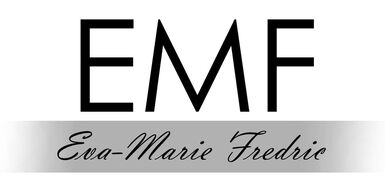
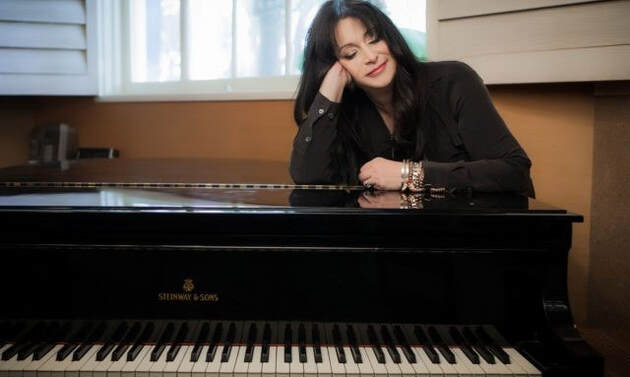
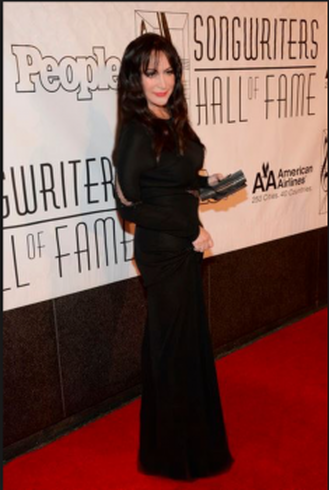
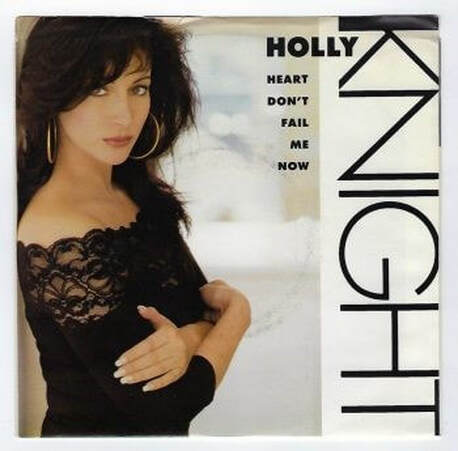
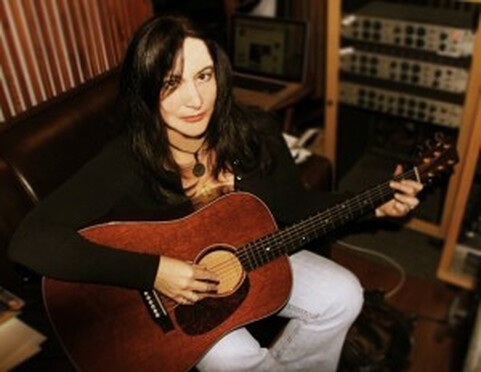
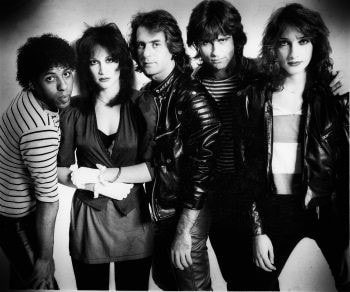
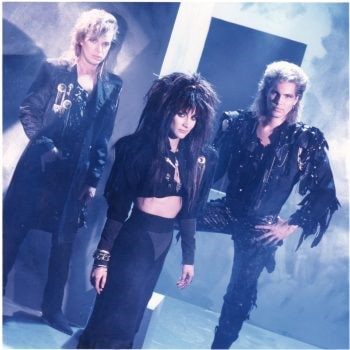
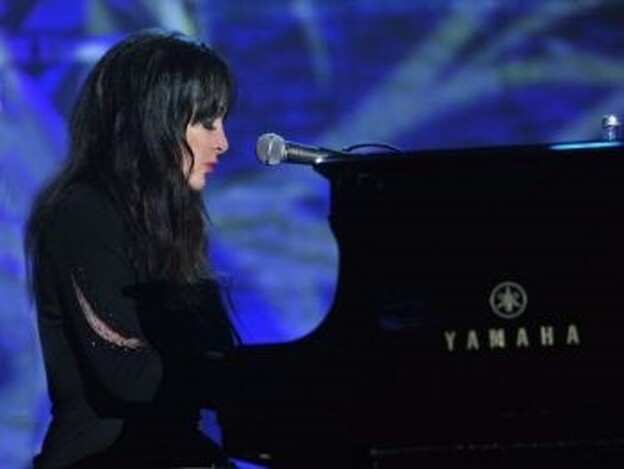
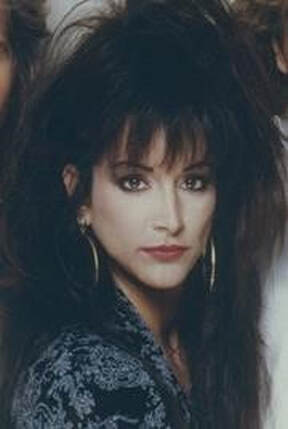
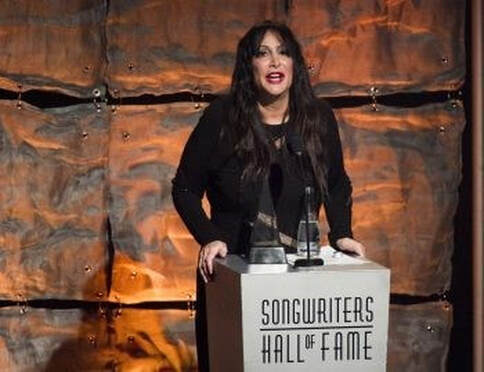
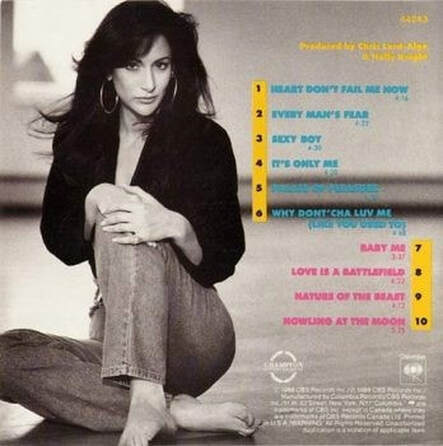
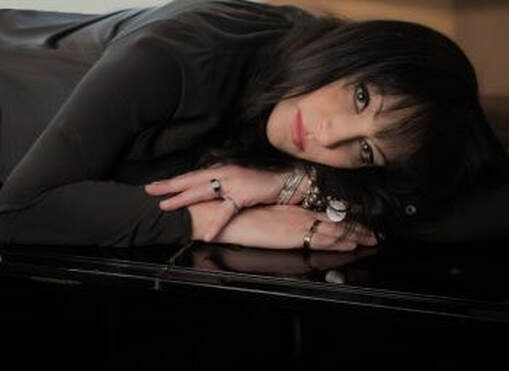
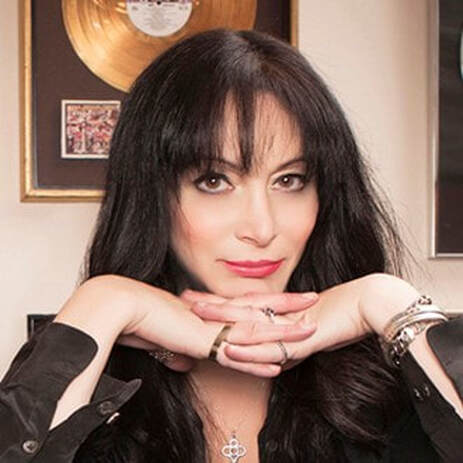
 RSS Feed
RSS Feed